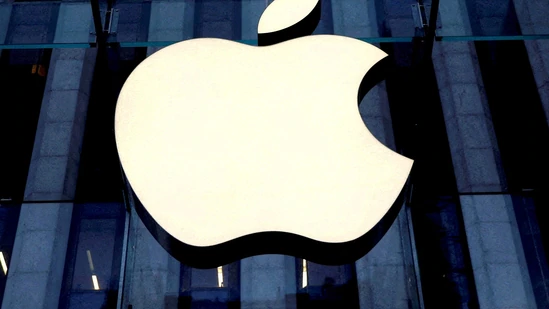Big Bite for the Apple: Antitrust Lawsuit Shaves Off $100 Billion in Market Value
The tech giant Apple is facing a major challenge, with its market value dropping a staggering $100 billion following an antitrust lawsuit filed by the US Department of Justice (DOJ). This lawsuit echoes similar concerns raised by European regulators, highlighting ongoing scrutiny of Apple’s business practices.
DOJ Takes a Bite: Accusations Against Apple’s App Store
The core of the DOJ’s lawsuit centers on Apple’s control of the App Store, the exclusive platform for downloading apps on iPhones and iPads. The government alleges that Apple’s practices stifle competition and harm consumers by:
- High App Store Fees: Apple charges developers a hefty commission, typically 15% to 30%, for all in-app purchases. This can significantly eat into developers’ profits and potentially lead to higher app prices for consumers.
- Limited App Distribution: Developers are restricted from distributing their apps outside the App Store, limiting consumer choice and potentially hindering innovation.
- Anti-Competitive Behavior: The lawsuit contends that Apple unfairly favors its own apps and services within the App Store, giving them an advantage over competing offerings.
A $100 Billion Bite: Market Reacts to Antitrust Concerns
The DOJ lawsuit has sent shockwaves through the tech industry. Investors, concerned about the potential consequences of the lawsuit, have reacted swiftly. Apple’s market value has plummeted by $100 billion, reflecting the uncertainty surrounding the outcome of the legal battle.
Europe Paved the Way: A History of Antitrust Scrutiny
The US lawsuit isn’t the first time Apple’s practices have come under fire. In 2021, the European Union ruled against Apple in a similar antitrust case. The EU found that Apple unfairly required iPhone users to utilize its proprietary Lightning chargers and mandated a switch to the more universal USB-C standard.
Looking Ahead: Potential Outcomes and the Future of App Stores
The outcome of the DOJ lawsuit remains to be seen. Apple will likely fight the charges vigorously. Potential scenarios include:
- Changes to App Store Fees: The lawsuit could force Apple to reduce its App Store commission, potentially benefiting both developers and consumers.
- Increased App Distribution Freedom: Courts might compel Apple to allow app distribution from alternative sources, fostering greater competition within the mobile app ecosystem.
- Shifting Landscape for App Stores: The lawsuit could set a precedent that influences how other app stores operate, potentially leading to more open and competitive platforms.
Beyond the Lawsuit: A Call for a More Balanced App Ecosystem
The DOJ lawsuit raises broader questions about the power and control wielded by major tech companies like Apple. Moving forward, discussions are needed on how to ensure:
- Fair Competition: A level playing field where app developers have the freedom to innovate and compete without being stifled by dominant platforms.
- Consumer Choice: Users should have access to a wider range of apps and services without being restricted by app store monopolies.
- Transparency and Accountability: Tech giants like Apple need to operate with greater transparency and be held accountable for their business practices.
The DOJ lawsuit against Apple is a significant development with far-reaching implications. The outcome has the potential to reshape the landscape of app stores and the broader tech industry. As the legal battle unfolds, we can expect further debate about the future of app distribution, competition, and consumer rights in the digital age.
Stay tuned for more updates:
For more insightful tips and expert advice, follow me on LinkedIn, Facebook, Instagram, Twitter, TikTok, Threads, YouTube channel and stay tuned!
For more information, visit Verofax at https://verofax.com or contact in**@ve*****.com








